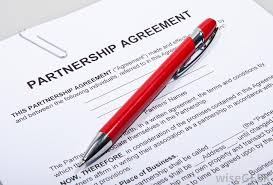A partnership is a legal document that governs how property is to be divided between the partners in a relationship. If you don’t have a formal partnership agreement in place then you will be guided by general rules set out in law. These rules state that one person is generally defined as the co-owner of the property, with each partner having a ‘common interest and benefit’. Partnerships also need to set out the manner in which a property will be transferred, such as through a life trust or another type of predefined process. Partnerships also need to define the manner in which property will be divided in the event of one of the partners being unable to perform their duties, or when one of the partners dies.

Because partnerships are very complex, it is advised to seek professional guidance from a solicitor and accountant for business dealings. For Accountants Gloucester, visit Accountants Gloucester firm Randall & Payne
To avoid the pitfalls that often come with informal agreements and documents, it is advisable for business owners to consult with a qualified lawyer before deciding on the formation of a partnership. This is particularly important if you are considering incorporating a business, as incorporating a partnership requires a court licence and can make running your business more complicated than it would be under normal circumstances.

If a deed of partnership is required for your business, be sure to seek legal and financial advice to ensure that it is the right move for your business.



